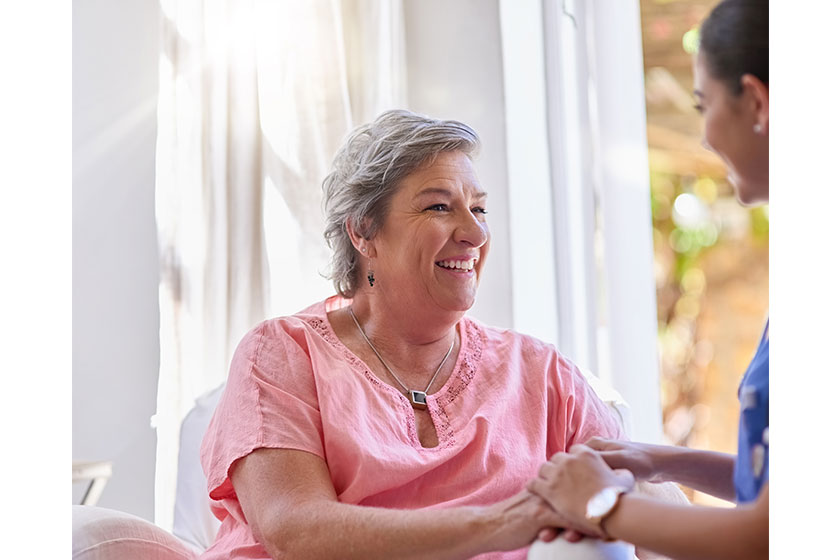Respecting the elderly’s privacy is a critical part of providing care that maintains their dignity and comfort. As people age, they may need more assistance with daily tasks, but that does not mean they want to give up their sense of independence or personal space. It is important to find a balance between giving the necessary help and making sure that their privacy is respected. This article will discuss several ways to maintain this balance, helping caregivers create a respectful and supportive environment.
Provide A Private Space
One of the most important steps in respecting an elderly person’s privacy is making sure they have a space of their own. As people age, they may feel more vulnerable and sensitive to the loss of independence. Creating a room or area where they can have time alone allows them to maintain a sense of autonomy.
Whether in a home or a retirement community, it’s crucial to guarantee that your loved one has a private room or space to retreat to when they need it. If you must enter this space, always knock and wait for permission before entering, reinforcing that their privacy matters.
Pay Attention To Body Language
Sometimes, elderly individuals may not verbally express a need for privacy, but their body language can tell you a lot. Pay attention to non-verbal cues, such as folded arms, stepping back or avoiding eye contact.
These signs can indicate discomfort or a desire for space. If you notice these signals, take a step back and allow them the room they need. Respecting these subtle cues goes a long way in preserving their dignity and showing that you respect their need for personal space.
Maintain Bathroom Privacy
Bathroom routines are a sensitive issue for many elderly individuals, especially if they require assistance. This is a time when privacy is most important. If your loved one needs help with bathing or using the toilet, be mindful of how you approach the situation.
Help with tasks like undressing or transferring into the shower, but step out of the room once they are safely settled to give them privacy. If leaving is not possible due to safety concerns, consider turning away or allowing them to cover up with a towel to maintain a sense of modesty and dignity.
Encourage Open Communication
Open communication is key when it comes to understanding an elderly person’s needs and respecting their privacy. Ask your loved one how they feel about certain aspects of their care and if there are areas where they prefer more privacy.
By having these conversations, you make it clear that their feelings matter and that you are committed to bringing care in a way that makes them comfortable. This dialogue fosters trust and guarantees that you can adjust the care you deliver based on their preferences.
Respect Their Personal Belongings
An often-overlooked aspect of respecting the elderly’s privacy involves their personal belongings. Whether it’s going through their drawers, organizing their room or handling their paperwork, always ask for permission before touching their things.
Even though they may need assistance, their belongings are a part of their personal space and respecting that space reinforces their sense of ownership and autonomy. Handle their possessions with care, and involve them in the process whenever possible to show that you value their input.
Allow For Alone Time
Elderly individuals, like anyone else, need time to themselves. Alone time can offer moments of peace, reflection and relaxation, helping them feel more in control of their environment. Encourage your loved one to spend time alone when they want to and avoid hovering or constantly checking in.
It’s important for them to feel that they can still have personal moments without feeling watched or monitored at all times. This respect for their time can lead to a greater sense of better health and well-being and emotional comfort.
Respecting the elderly’s privacy is about maintaining their dignity, independence and comfort while bringing care. At the same time, it’s important to balance safety with privacy, especially in situations where help is required. Taking these steps allows you to care for your loved one in a way that honors their need for respect and autonomy.
If you have any questions about our senior living options, don’t hesitate to get in touch with us.







